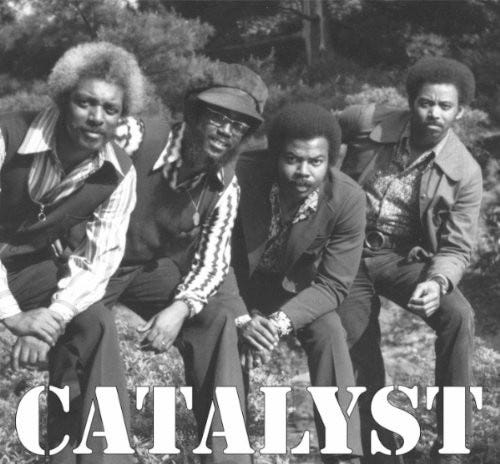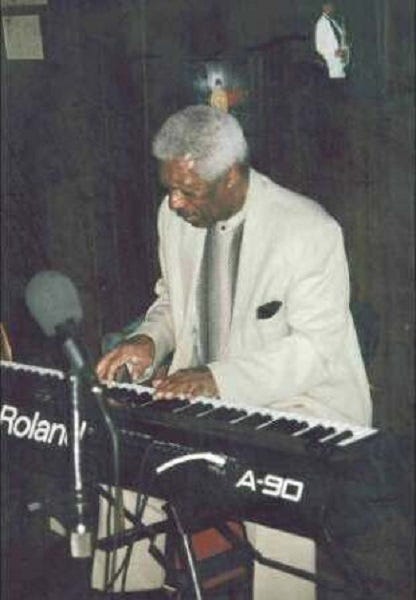Eddie Green (May 2, 1933 – July 5, 2004) – New-Found Truths (1972)
The unsung MFSB keyboardist wrote this beautiful, laid back jam for his jazz fusion group Catalyst's self-titled debut LP, produced by Skip Drinkwater.
View most updated version of this post on Substack
Search our full archives
Eddie Green was an unsung keyboardist and songwriter who played with the Philadelphia jazz fusion group Catalyst. He was also a member of both MFSB and later the Salsoul Orchestra, and co-wrote a number of Philly soul and disco classics.
Born in the Willow Grove suburb of Philadelphia, Edward Clifton Green was mentored in his early years by Bud and Richie Powell and studied music at Combs College of Music. During the fifties and sixties he performed with jazz greats including Dexter Gordon, Donald Byrd, Hank Crawford, Max Roach, Gary Bartz, and Betty Carter,
In the early seventies, Green was a member of the Philly-based jazz fusion group Catalyst. They released four albums from 1972 to 1976.
For their 1972 self-titled debut LP, recorded at Sigma Sound Studios and co-produced by Dennis Wilen and Skip Drinkwater, Green wrote and played piano on the very funky opening cut “Ain’t It The Truth.” It also featured Norman Harris on guitar and Ronnie Baker on bass, core original members of MFSB (aka Mother Father Sister Brother, the house band for Kenny Gamble and Leon Huff’s Philadelphia International Records). The album was released on Cobblestone, a jazz label founded by former Prestige and Verve producer and executive Joe Fields.
Green also wrote the beautiful, laid back “New-Found Truths,” with Drinkwater on shaker (poppy pod) and Anthony Jackson on bass. Jackson was a prolific Philly session musician and MFSB member who co-wrote “For The Love Of Money” by the O’Jays when he came up with the epic bass line the song was based around.
For their second album Perception (1973), Green wrote the far-out jazz odyssey “Celestial Bodies.” The LP was again produced by Wilen and Drinkwater but came out on Muse Records, another label owned by Fields. This time Harris played on the entire album. Bassist Tyrone Brown was a new addition to the lineup, who had replaced original bassist Alphonso Johnson in the group.
Their third album was titled Unity (1974) and released by Muse. Green and drummer Sherman Ferguson co-wrote the epic jazz-funk opening cut “A Country Song,” on which Alphonso Johnson returned to play bass and Billy Hart was behind the drums.
Today, all of Catalyst’s albums sell for approximately $100 and up on Discogs.
Green himself was an early member of MFSB. He played on classic PIR albums like Billy Paul’s breakthrough 360 Degrees Of Billy Paul (1972), on which he was the only keyboardist besides co-producer Huff. He and Norman Harris (who was MFSB’s original rhythm guitarist) later co-wrote the Trammps’ classic message song “Love Epidemic” (1973).
Along with Morris Bailey, Green co-wrote the slow jam “Maybe, Just Maybe (We Can Fall In Love Again)” by Blue Magic, off their 1974 LP The Magic of the Blue. It was arranged and produced by Harris.
In 1979, he and lyricist Cary Gilbert co-wrote the beautiful slow jam “Put This Life Down” for Billy Paul. Green also arranged the track and co-produced it with Paul. It was issued as the B-side to the superb “False Faces,” but sadly the single did not chart.
Happy Heavenly Birthday to the great Eddie Green.
Further info:
“Eddie Green,” All About Jazz.
"Joy and generosity accompanied beloved pianist Eddie Green: The jazz-and-everything musician helped others learn to sing from the soul," by Suzanne Cloud, Medium, August 11, 2004.
#soul #funk #disco #Philly #PIR #MFSB #EddieGreen






